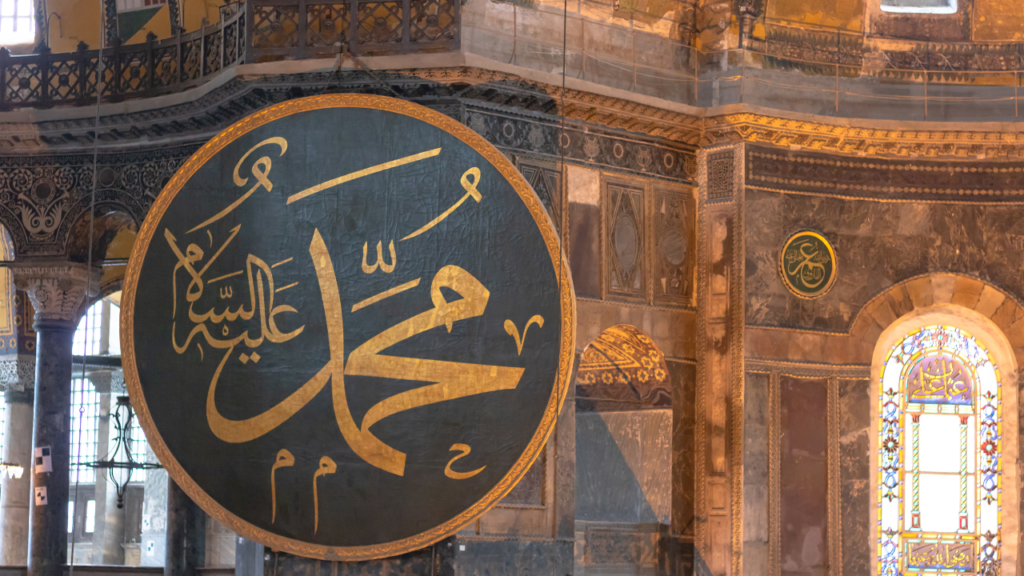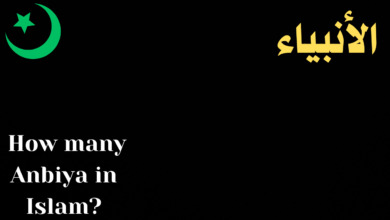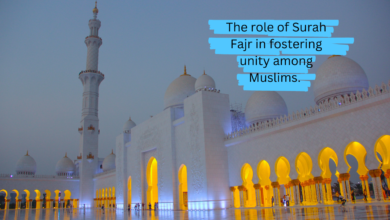
Islam in Bible
While the term “Islam” itself is not mentioned in the Bible, some argue that the principles or concepts associated with Islam can be found in certain passages of the Bible.

Introduction
The Bible, one of the most influential and widely read religious texts in the world, has profound connections with Islam, another major Abrahamic faith. While the Quran is the primary religious text for Muslims, and the Bible holds a central place in Christianity, there are many shared themes, figures, and narratives that bridge the gap between these two religions. In this article, we will delve into the connections between Islam and the Bible, highlighting the common themes and figures that bind them together.
Shared Ancestry: Abraham
The most fundamental connection between Islam and the Bible lies in their shared ancestry. Both religions trace their lineage back to the prophet Abraham (Ibrahim in Islam). In the Bible, Abraham is a prominent figure in the Book of Genesis, while in the Quran, his story is detailed in various chapters, including Surah Ibrahim. Muslims believe that Abraham was a true monotheist and a prophet who submitted to the will of Allah (God). This common heritage serves as a foundational link between Islam and the Bible.
Monotheism: The Oneness of God
Both Islam and the Bible emphasize the belief in one true God. In Islam, the concept of monotheism (Tawhid) is central, and Muslims worship Allah alone. In the Bible, particularly in the Old Testament, the belief in one God is explicitly stated in passages like the Shema from the Book of Deuteronomy. This shared monotheistic belief forms a fundamental aspect of both religions, highlighting their theological similarities.
Prophets and Messengers
Islam and the Bible share many prophetic figures, including Adam, Noah, Moses, and others. These prophets play a significant role in both religious traditions, often conveying God’s guidance to humanity. For example, the story of Moses and the Exodus is found in both the Bible and the Quran, underscoring the common narrative elements between the two faiths.
Also Check
- Who is Muhammad?
- Why did Prophet Muhammad migrate from Mecca to Medina?
- Who were the grandsons of Prophet Muhammad?
- Why theft is prohibited in Islam?
- How are Muslims buried?
Mary and Jesus in Islam and the Bible
Mary (Maryam in Islam) and Jesus (Isa in Islam) hold special places in both the Quran and the Bible. In the Bible, the New Testament contains the accounts of Jesus’ life, teachings, and miracles. Similarly, the Quran devotes an entire chapter, Surah Maryam, to Mary, and honors Jesus as a prophet. While there are theological differences between the two religions regarding Jesus’ divinity, both recognize his importance as a messenger of God.
Ethical and Moral Guidance
Both Islam and the Bible provide ethical and moral guidance to their followers. The Ten Commandments, given to Moses in the Bible, share similarities with Islamic ethical principles found in the Quran and Hadith (sayings and actions of the Prophet Muhammad). Concepts like justice, compassion, and charity are emphasized in both faiths, promoting a shared moral framework.
End Times and Judgment
Islam and the Bible contain prophecies about the end times and the Day of Judgment. In Islam, the Quran and Hadith describe the signs leading to the Day of Judgment, while the Bible, particularly in the Book of Revelation, contains apocalyptic imagery and predictions about the end of the world. Although the details may differ, the overarching idea of divine judgment and a final reckoning is present in both religious traditions.
Conclusion
The connections between Islam and the Bible run deep, reflecting their shared Abrahamic heritage and common theological themes. While there are also significant differences in beliefs and interpretations, it is essential to acknowledge and appreciate the areas of common ground that promote understanding and dialogue between these two major world religions. Recognizing these shared elements can foster interfaith dialogue, mutual respect, and cooperation among believers of Islam and Christianity.

Frequently Asked Questions about Islam in the Bible
Is Islam mentioned in the Bible?
While the term “Islam” itself is not mentioned in the Bible, some argue that the principles or concepts associated with Islam can be found in certain passages of the Bible.
Are there any references to Muhammad in the Bible?
No, the Bible does not mention the Prophet Muhammad by name. However, some Muslims believe that there are prophecies or references in the Bible that can be interpreted as alluding to him.
What are some biblical passages that Muslims point to as references to Islam or the Prophet Muhammad?
Muslims often refer to verses like Deuteronomy 18:18 and the Song of Solomon 5:16 as possible references to the coming of a prophet or the characteristics of the Prophet Muhammad.
How do Muslims view the Bible?
Muslims generally respect the Bible as a holy scripture, considering it to be a precursor to the Quran. They believe that it contains elements of divine guidance but also consider the Quran to be the final and most complete revelation.
Do Muslims believe in the same God as the Bible?
Yes, Muslims believe in the same monotheistic God (Allah) as the God of the Bible. They view Allah as the one and only God, the Creator of the universe.
What is the relationship between Islam and the Abrahamic faiths of Judaism and Christianity?
Islam, Judaism, and Christianity are considered Abrahamic religions because they trace their spiritual lineage to the Prophet Abraham. Muslims believe that Islam is the culmination and continuation of the Abrahamic faiths.
Are there any similarities between Islamic and Biblical stories or teachings?
Yes, there are several similarities in the stories of various prophets and some moral teachings shared between Islam and the Bible. For example, the stories of Adam and Eve, Noah’s Ark, and Moses are found in both religious texts.
What are the key differences between Islamic and Christian beliefs regarding Jesus?
While both Islam and Christianity revere Jesus, they have different beliefs about him. Muslims consider Jesus (Isa in Arabic) to be a prophet but not divine, whereas Christians believe in the divinity of Jesus as the Son of God.
Is there a Quranic perspective on the Bible?
Yes, the Quran acknowledges the Bible as a previous revelation from God but also suggests that it has been altered over time. Muslims believe that the Quran is the final and most accurate revelation.
Can a Muslim read and study the Bible?
Yes, Muslims are allowed to read and study the Bible, and many do so to gain a better understanding of the historical and religious context of the Abrahamic faiths. However, they are expected to do so with respect and understanding of the Quranic teachings.






